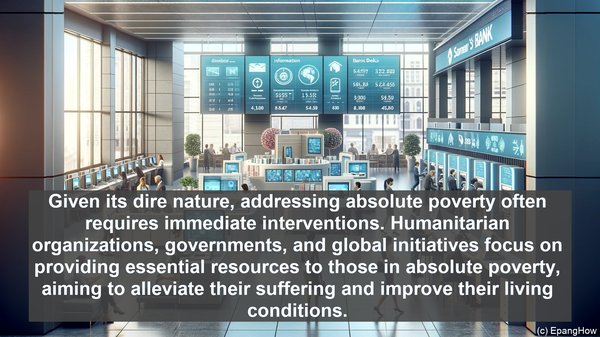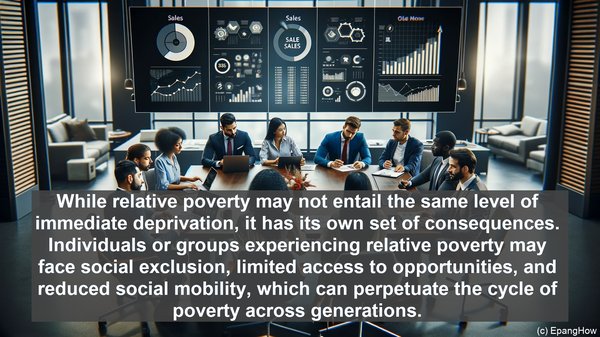Introduction: The Multifaceted Nature of Poverty
Hello everyone! Poverty, a pervasive issue, is often discussed in various contexts. Today, we’ll focus on two key aspects: absolute poverty and relative poverty. While both terms revolve around the lack of resources, they differ significantly in their approach and implications.
Defining Absolute Poverty: The Direst Form
Absolute poverty refers to the most severe form of poverty. It is characterized by a lack of basic necessities, such as food, clean water, shelter, and healthcare. The threshold for absolute poverty is often set at a level where individuals or communities struggle to meet their fundamental needs for survival and well-being.

Understanding Relative Poverty: A Comparative Measure
On the other hand, relative poverty is a comparative measure. It assesses an individual or group’s economic status in relation to the overall society. In this context, someone is considered in relative poverty if their income or resources fall significantly below the average or median income of the population they are part of.
Factors Influencing Absolute Poverty
Absolute poverty is often influenced by a range of factors, including geographical location, political stability, access to education, and healthcare infrastructure. In many cases, regions with high absolute poverty rates also face challenges like natural disasters, conflict, or limited economic opportunities.
The Dynamic Nature of Relative Poverty
Relative poverty, unlike absolute poverty, is more dynamic. It can change over time, even in societies with overall economic growth. Factors such as income inequality, changes in social policies, or shifts in the job market can all impact the prevalence of relative poverty.
Implications of Absolute Poverty: Immediate Needs
Given its dire nature, addressing absolute poverty often requires immediate interventions. Humanitarian organizations, governments, and global initiatives focus on providing essential resources to those in absolute poverty, aiming to alleviate their suffering and improve their living conditions.
The Complex Consequences of Relative Poverty
While relative poverty may not entail the same level of immediate deprivation, it has its own set of consequences. Individuals or groups experiencing relative poverty may face social exclusion, limited access to opportunities, and reduced social mobility, which can perpetuate the cycle of poverty across generations.
Complementary Approaches: Tackling Both Forms of Poverty
Effectively addressing poverty requires a multi-faceted approach. While immediate relief efforts are crucial for absolute poverty, long-term strategies, such as education, skill development, and inclusive economic policies, are vital to combat both absolute and relative poverty.

